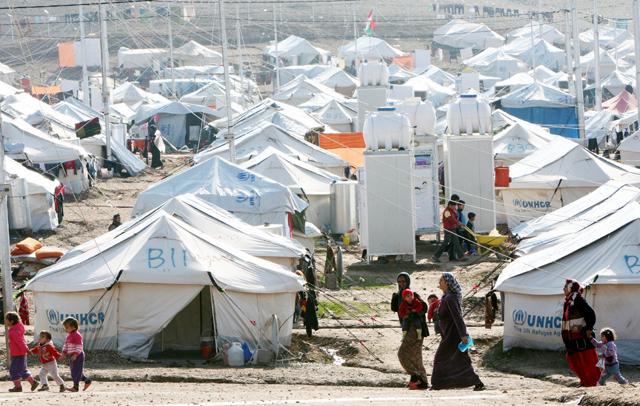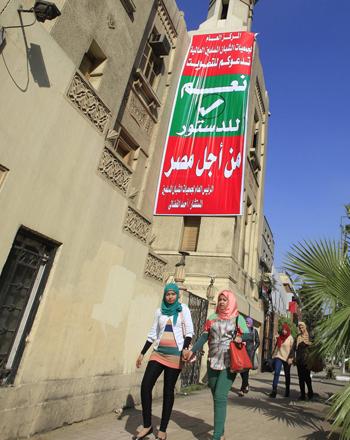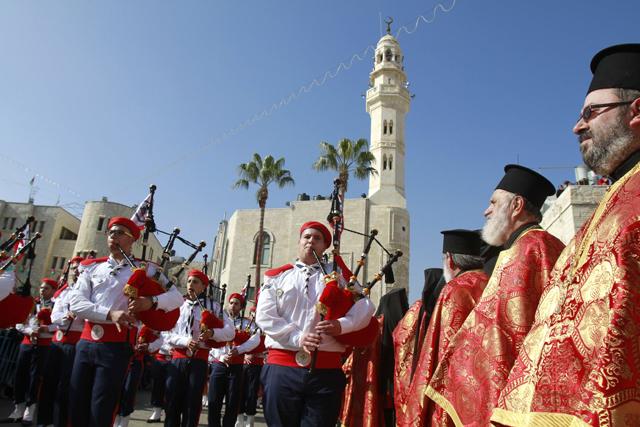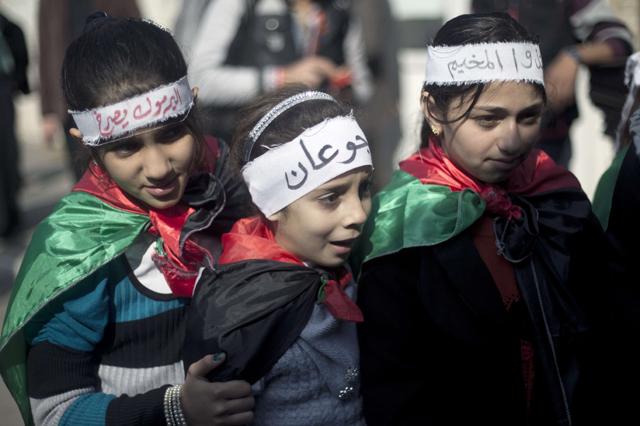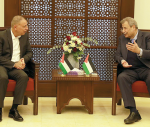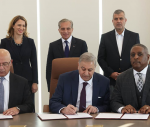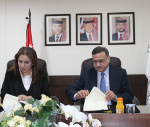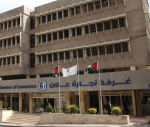UNITED NATIONS –– UN Secretary General Ban Ki-moon on Monday sent invitations to 30 countries to attend a Syria peace conference this month, but did not include Iran, a spokesman said.
US Secretary of State John Kerry and Russian Foreign Minister Sergei Lavrov will meet on January 13 in a bid to decide Iran’s role in ending the nearly three-year-old war, said UN deputy spokesman Farhan Haq.
Russia supports the participation of Iran, a major backer of President Bashar Assad, at talks scheduled to start in Switzerland on January 22.
The United States and other western nations say Iran must first support a 2012 declaration by the major powers calling for a transitional government in Syria before it can play a frontline role in the peace talks.
The role of Iran is one of many obstacles that have bedevilled efforts by Ban and UN-Arab League peace envoy Lakhdar Brahimi to organise the conference.
The makeup of the Syrian opposition and government delegations has also called friction and details of their representatives have still not been released.
But Haq confirmed to reporters that Ban has started asking countries to attend, while adding: “Iran was not among the first invitations.”
The 30 countries on the list do include Saudi Arabia, a major backer of the Syrian opposition, as well as Britain, China, France, Russia and the United States –– the five UN Security Council permanent members –– and Syria’s neighbours such as Turkey, Iraq and Jordan.
Highlighting the January 13 meeting between Kerry and Lavrov, the UN spokesman said “we very much hope they will reach agreement on Iran’s participation”.
Ban has spoken in favour of Iran’s attendance. “We all know that the active support of regional powers in a political solution is critical,” said Haq.
Kerry reaffirmed the US position on Sunday while adding that Iran could play a role from the “sidelines”.
US deputy State Department spokeswoman Marie Harf reaffirmed Monday that Iran would have to accept the declaration –– adopted at a meeting in Geneva in June 2012 –– calling for a transitional government in Syria before it could attend the new conference.
Iran would have to show that is being “less destructive” in the Syrian war, Harf added.
With the war worsening, Lavrov and Kerry have been pressing since May for a follow-up Geneva conference.
The new meeting, which will have a much bigger guest list than for 2012, will start in Montreux before moving back to Geneva for serious negotiations.
“It aims to bring two broadly representative and credible delegations of the Syrian government and opposition to a negotiating table in order to end the conflict and launch a political transition process through the full implementation of the Geneva communiqué of 30 June 2012,” said Haq.
“The secretary general views the conference as a unique opportunity for ending the violence and ensuring that peace can be restored,” he added.
“At the core of this effort is the establishment of a transitional governing body based on mutual consent.”
Even after any role of Iran, and opposition backer Saudi Arabia, is decided, the conference faces a mountainous struggle to end the bloodshed.
The Syrian government, which has stepped up its bombardment of opposition strongholds such as Aleppo, says that Assad’s future cannot be discussed at the peace conference.
Western nations back the opposition case that Assad cannot be a part of any transitional government.
Amid the diplomatic tensions, the death toll has risen to more than 130,000 since protests against Assad that started in March 2011 turned into a civil war, according to Syrian activists.

